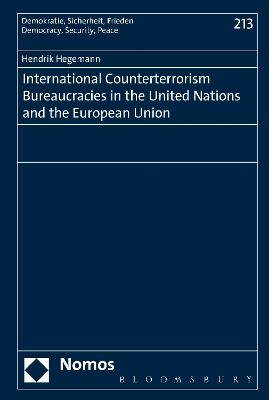Demokratie, Sicherheit, Frieden
1 primary work
Book 213
International Counterterrorism Bureaucracies in the United Nations and the European Union
by Hendrik Hegemann
Published 12 December 2014
Since the attacks of September 11, 2001 a complex web of international structures and rules for the fight against transnational terrorism has emerged. However, previous research disregarded the organizational basis of counterterrorism cooperation.
Using the example of bureaucratic actors in the United Nations and the European Union, this study examines how and to what degree international counterterrorism bureaucracies exercise autonomy and perform distinct functions. The book reveals the special ambivalence of counterterrorism cooperation for international bureaucracies, which need to reconcile calls for effective counterterrorism with the need to maintain an impression of technical impartiality in a particularly contested policy-field. They respond to this challenge with different strategies of politicization and depoliticization.
Using the example of bureaucratic actors in the United Nations and the European Union, this study examines how and to what degree international counterterrorism bureaucracies exercise autonomy and perform distinct functions. The book reveals the special ambivalence of counterterrorism cooperation for international bureaucracies, which need to reconcile calls for effective counterterrorism with the need to maintain an impression of technical impartiality in a particularly contested policy-field. They respond to this challenge with different strategies of politicization and depoliticization.
